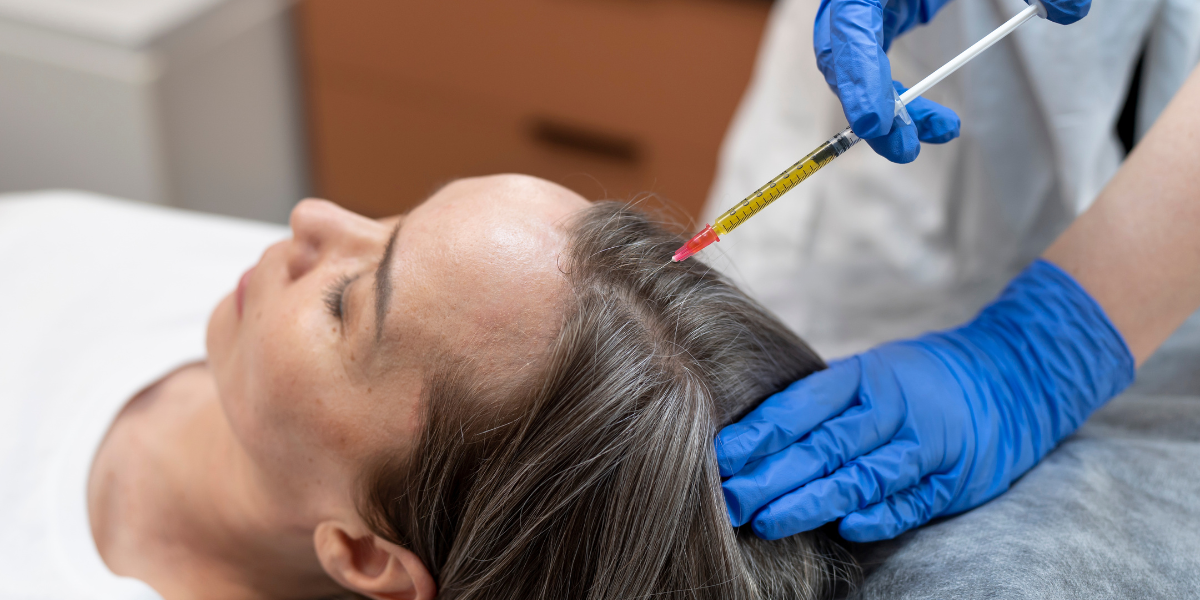Hair health is a vital aspect of our overall well-being, yet it often gets overlooked. Hair issues such as thinning, breakage, dandruff, and scalp disorders are common and can significantly impact one’s confidence and quality of life. This is where medical trichology becomes relevant.
Medical trichology is the scientific study of the hair and scalp, offering a comprehensive approach to diagnosing and treating various hair-related problems. In this blog, we will explore the basics of medical trichology, its importance, and how it can contribute to maintaining healthy hair.
What is Medical Trichology?
Medical trichology, a specialized field within dermatology, is dedicated to the study and treatment of hair and scalp conditions. Trichologists are specialists trained to identify and treat conditions affecting hair growth, hair texture, and the health of the scalp. They combine scientific knowledge with practical expertise to address a wide range of issues, from common problems like dandruff and hair thinning to more complex conditions such as alopecia and scalp infections.
The Importance of Healthy Hair
Healthy hair is more than simply a cosmetic concern. It can be an indicator of overall health and well-being. Hair issues can be symptomatic of underlying health problems such as nutritional deficiencies, hormonal imbalances, and chronic illnesses. By addressing hair and scalp issues through a scientific approach, medical trichology not only improves hair health but also contributes to the early detection and management of broader health concerns.
Common Hair and Scalp Conditions
- Hair Loss (Alopecia): One of the most common issues addressed by trichologists is hair loss. This can occur due to various reasons including genetics, hormonal changes, stress, and medical conditions. Trichologists can diagnose the type of alopecia and recommend appropriate treatments.
- Dandruff and Seborrheic Dermatitis: These are common scalp conditions characterized by flaky, itchy scalp. They can be caused by overproduction of sebum, fungal infections, or skin conditions like psoriasis.
- Scalp Infections: Bacterial or fungal infections can lead to scalp issues such as folliculitis and ringworm, which can result in hair loss if left untreated.
- Hair Shaft Disorders: Conditions like trichorrhexis nodosa (hair breakage) and trichoptilosis (split ends) can affect hair quality and appearance.
Diagnosis and Treatment in Medical Trichology
Trichologists use a variety of diagnostic tools and methods to assess hair and scalp conditions. These may include:
- Trichoscopy: This is a non-invasive method that uses a dermatoscope to magnify and examine the scalp and hair. It helps in identifying hair shaft abnormalities, scalp inflammation, and other conditions.
- Blood Tests: These can help identify underlying medical conditions, such as hormonal imbalances or nutritional deficiencies, that may be affecting hair health.
- Biopsy: In some cases, a scalp biopsy may be necessary to diagnose certain conditions.
- Hair Analysis: Examining the hair shaft under a microscope can provide information about hair damage and abnormalities.
Treatment Approaches
The treatment plans in medical trichology are personalized and may include a combination of the following:
- Topical Treatments: These include medicated shampoos, creams, and lotions that can address specific scalp issues like dandruff or infections.
- Oral Medications: In cases where hair loss is due to hormonal imbalances or nutritional deficiencies, trichologists may prescribe oral medications or supplements.
- Laser Therapy: Low-level laser therapy can stimulate hair growth and improve hair density.
- Hair Transplants: For severe cases of hair loss, surgical options like hair transplants may be recommended.
- Lifestyle and Dietary Changes: Trichologists often advise on diet and lifestyle modifications to improve overall hair health. This can include recommendations for a balanced diet, stress management techniques, and proper hair care routines.
Preventive Measures for Healthy Hair
Prevention is always better than cure. Here are some tips to maintain healthy hair:
- Healthy Diet: A balanced diet rich in vitamins and minerals is essential for hair health. Include foods high in iron, zinc, and vitamins A, C, and E.
- Proper Hair Care: Use mild shampoos and conditioners suited to your hair type. Try to limit heat styling and harsh chemical treatments.
- Regular Scalp Check-ups: Regular visits to a trichologist can help in the early detection and treatment of potential hair and scalp issues.
- Stress Management: Stress can have a significant impact on hair health. Engaging in activities like yoga, meditation, and consistent physical exercise can effectively reduce stress.
- Hydration: Keeping the scalp hydrated is crucial. Drink plenty of water and use moisturizing hair products if necessary.
The Role of Trichologists
Trichologists are essential in the diagnosis and treatment of hair and scalp conditions. They provide a holistic approach that encompasses not only the physical aspects of hair health but also the emotional and psychological impacts. By offering personalized treatment plans, trichologists help individuals regain their confidence and improve their quality of life.
Summary
Medical trichology offers a scientific approach to understanding and addressing hair and scalp issues. By combining expert knowledge with personalized care, trichologists can diagnose and treat a wide range of conditions, from hair loss to scalp infections. Regular check-ups and preventive measures can go a long way in maintaining healthy hair. If you’re experiencing hair or scalp problems, consider consulting a trichologist for a comprehensive assessment and tailored treatment plan.
IICAD Academy Bangalore excels in providing comprehensive education in trichology, offering expert knowledge and personalized care. Discover how trichologists diagnose and treat hair and scalp issues, including hair loss and scalp infections, emphasizing regular check-ups and preventive measures for optimal hair health.

